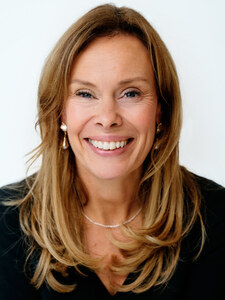The principle of collective responsibility is key for governance of fund boards. Board rely on the integrity of the information provided to their delegates and objectively assesses the information provided, taking into account the interests of investors. The principle of collective responsibility of a board of directors under company law must be maintained. Any decisions or actions required to be taken on behalf of investors by the board, should be taken independently, objectively, collectively and in the interest of all investors.
We note the statement made by the Central Bank to the effect that the introduction of the framework does not alter the concepts of collective responsibility shared by directors as board members, and collective decision-making, which is dependent on the appropriate contributions of individual members in order to be robust. While this is welcome, we would be hopeful that the Central Bank can provide more guidance to the industry around how firms can continue to implement collective decision making while recognising the impact on the increased focus on individual responsibility.

Lisa Martensson: "The framework should not allow for holding an individual INED accountable for wrong-doing of a delegate or a service provider. Individual accountability should not outweigh accountability of the organisations".
Reinforcing the delegated model in the fund industry
The application of SEAR and IAF in the context of a fund is unlike other regulated firms. A fund is an investment product, not a regulated firm and it operates on the principle of a delegated model, where the functions are performed by regulated service providers. This principle needs to be appreciated and applied in the application of SEAR/IAF, and should reasonably result in a difference of approach in the application of SEAR/IAF between executive and independent non-executive directors.
The framework should not allow for holding an individual INED accountable for wrong-doing of a delegate or a service provider. Individual accountability should not outweigh accountability of the organisations.
David versus Goliath
The CBI has resources and enforcement tools available to them to directly regulate firms and their executive management. This is disproportionate to the experience, resources, and time available to one human being who is a PCF holder and is dependent on their role to make a living. Accountability should be synonymous with carrying out responsibilities faithfully and not immediately be associated with potential sanctions.
Casting a doubt over someone’s fitness and probity can mean the potential end of a career even if the INED is subsequently cleared of acting improperly - either for acts of commission or acts of omission. The onus on an individual to uphold the expected standards for a period for 6 years will come with increased risks and costs (which will likely indirectly be passed on to investors). Where an individual needs protection over an incident which occurred some years ago, will their records be of a standard that could be presented in a court of law and stand up to those of an organisation with unlimited resources that it will have to hand?
The regulator must be mindful to adhere to fundamental principles of natural justice and proportionality. In the absence of this there is likely to be an increase in PCF holders having recourse to judicial review of the CBI’s enforcement actions. This is not in anybody’s interest, least of all investors.
Further clarity
On a positive note, in the long term, the framework could provide clarity of responsibilities and improve collective decision making, as the board will need to demonstrate reasonable steps were taken in advance of any decision. This could improve corporate governance standards and clarity on delegations. However in order to do so, comprehensive guidance from the regulator on how to implement best practice is essential to avoid failure to meet expectations.
On the Common Conduct Standards and Additional Conduct Standards including the new certification requirements under the F&P Regime, we consider them generally welcome. However, whilst INEDs are key influencers, who can challenge and ask the right questions, an individual acting alone can never control conduct, culture or resources.
Competitiveness
Many significant undertakings might shy away from locating their business in Ireland if they feel that their in-house non-executive directors are going to have burdens imposed on them over and above those which they might be subjected to in their home countries.
In addition, SEAR/IAF will bring all PCF role holders under the scope of the framework. This may create a reluctance for financial service professionals to step up into PCF roles, therefore creating a knowledge gap.
